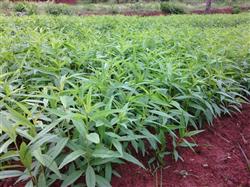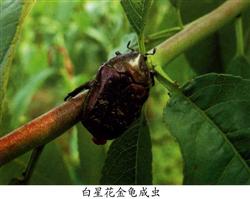Cultivation techniques of Yellow Peach seedlings

Yellow peach seedling cultivation techniques 1, introduction: yellow peach seedlings are yellow peach seedlings, belong to grafted seedlings, grafted by peach seedlings. Yellow peach is native to China, and there are many varieties of yellow peach cultivated in China, so yellow peach seedlings can be divided into three categories: first, fresh yellow peach seedlings such as Fenghuang seedlings, Jinhuang seedlings, etc. Second, seedlings for processing yellow peaches, such as canned 83 seedlings, 19 peach seedlings, golden boy series seedlings, and third, fresh peach seedlings such as Jinxiu yellow peach seedlings, golden crown peach seedlings and so on. The main producing areas of yellow peach seedlings in China are concentrated in Wutai Town, Pingyi County, Shandong Province, Yuncheng, Shanxi Province, and Dalian, Liaoning Province. From seed selection, seedling grafting and pest control, there are the following processes. 2. Seed and seedling cultivation: yellow peach nursery should choose sandy soil with convenient drainage and irrigation, loose and fertile soil, and avoid repeated cropping. Peach species should choose the hairy peach or small mountain peach harvested in the same year. Can be divided into autumn sowing and spring sowing, autumn sowing before soil freezing, sun-dried peach seeds soaked in water for 48 hours before direct sowing. Spring sowing seeds should be treated with sand before freezing and can not be sown until dormancy is broken. Sand storage method: soak the peach kernel in cold water for 48 hours, take clean river sand and wet it with water, hold it in your hand and disperse it as soon as you loosen it. Mix 1 seed with 3 parts of wet sand, open ditch in closed shade, ditch 60-70 cm deep, length and width depend on the number of seeds, first spread 10 cm thick wet sand at the bottom of the ditch, then put seeds mixed with sand on top, pile to 10 cm deep above the ground, cover with 10 cm thick wet sand, cover the top with soil 15 cm, sow in late March, sow in one row and two rows, sow about 30,000 seeds per mu, strengthen fertilizer and water in the middle. Promote plant growth. 3. Grafting method: ungrafted seedlings are called seedlings or hairy seedlings. Yellow peach seedlings must be grafted, grafted yellow peach seedlings can be divided into two kinds: first, finished seedlings: at the beginning of June, when the seedlings grow to a height of about 60 cm, the seedlings are grafted with "D" shape peeling buds, and the scion selects yellow peach varieties with good comprehensive characters. the grafted seedlings can grow to about 1 cm in diameter in autumn and can come out of the nursery in the same year. Second, bud seedlings: also known as semi-finished seedlings or autumn seeds, usually grafted in mid-late August, using "T" shaped bud grafting or peeling and sticking, the grafted peach buds no longer germinate in the same year, and the following spring they were cut from 1 cm above the grafting buds to cultivate large yellow peach seedlings. 4. Prevention and control of diseases and insect pests: there are not many diseases and insect pests in yellow peach seedlings. According to the actual situation, pesticides such as trimethoprim, carbendazim or benzoin zinc can be applied to control powdery mildew and perforation of yellow peach seedlings, and imidacloprid can be sprayed to control aphids. The prevention and control of root nodule disease of yellow peach seedlings is the most important. In the middle of May, 5 kg stone-sulfur mixture (Baume 3 degrees) per mu can be used to evenly dilute and pour into the seedling field with irrigated water, and root irrigation can be used for control. Dichlorvos and Bordeaux liquid will cause serious drug damage to yellow peach seedlings and should be strictly prohibited. 5. Planting method: yellow peach seedlings were planted before November to March of the following year, mainly in autumn, and planted before the soil was completely frozen after the peach seedlings were defoliated, so that the slow seedlings were fast and the survival rate was high next spring. The traditional planting is generally planted according to the row spacing of 3 meters × 4 meters and 55 plants per mu. The dense planting cultivation method of Daxing Fruit Professional Cooperative in Pingyi County, Shandong Province, according to the row spacing of 1 m × 3 m, carrying about 220 plants per mu, adopts a spindle tree shape, which is simple and labor-saving in management, premature and high yield, which is more suitable for large-scale development. 6. Notes on selection and purchase: when planting yellow peach seedlings, strong seedlings with a good graft interface and a diameter of more than 0.5 cm should be selected, requiring well-developed roots, uniform and complete main and lateral roots, no mechanical injury, no root nodules, and no waterlogging damage. Try to buy yellow peach seedlings from the main producing areas of yellow peach varieties, because there are large area fruiting trees to ensure the use of high-quality yellow peach scions to ensure the purity of yellow peach seedlings. Many nursery bases only light seedlings, there are no local peach trees, scions have to go to the non-local yellow peach base to buy, there is no guarantee of peach seedling purity. In addition, if the peach seedling scion uses the node buds of peach trees after repeated grafting, the quality will decline, so the first generation of grafted yellow peach seedlings should be selected as far as possible to avoid the use of multi-generation grafted peach seedlings. We should not blindly believe in some novel varieties advertised. Some seedling merchants introduce a variety from other places and then choose a random name to maliciously advertise it as a new variety, thus misleading growers. We must pay attention to this problem.
- Prev

Correction of Nectarine physiological Disease-nitrogen deficiency
Soil nitrogen deficiency can make the leaves of the whole plant light green to yellow. Petioles and veins turn red. At this time, the growth of new shoots is hindered, the leaf area decreases, and the branches and leaves become relatively hard. If the nitrogen deficiency is too serious, the mesophyll between the large veins will appear red or reddish brown spots within 1-3 weeks. At a later stage, Xu.
- Next

Control of nectarine pest white starflower beetle
Adult body length 20~24 mm, body copper color, pronotum and elytra have irregular white spots more than 10. Adults nibble on ripe fruit, depriving it of commercial value. White starflower beetle occurs 1 generation per year, overwintering in soil and organic fertilizer as larvae, and easy to grow in chicken manure.
Related
- Moge, come on! The staff of the peasant association in the producing area of cantaloupe were frightened when the crowd gathered.
- Causes and Solutions of low Fruit setting rate of Apple
- Symptoms and control measures of passion fruit virus disease
- Fruit growing lesson: how do apple orchards keep high yields?
- Can you build orchards in the mountains? What are the pros and cons?
- How to manage the coloring period of Crisson grape?
- This paper introduces the processing technology of two kinds of fig products.
- How much is a month for retired teachers in rural areas by 2020?
- How can strawberry planting increase sugar content? We should pay attention to management in many aspects.
- What are the cultivation techniques on how to improve the yield of golden fruit?

